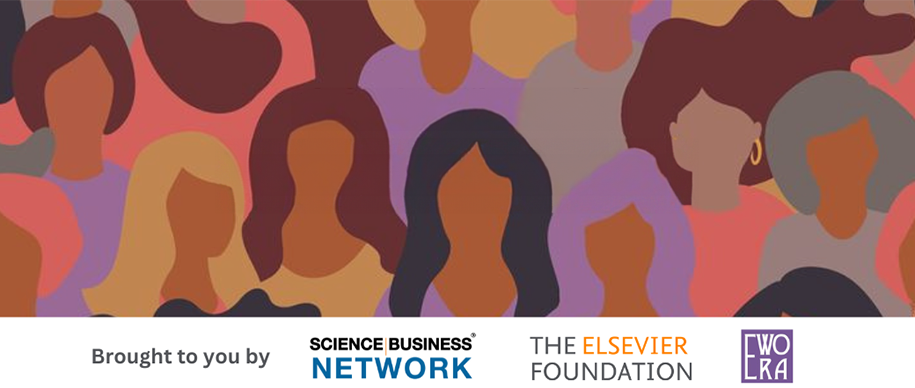
The Elsevier Foundation, the European Women's Rectors' Association (EWORA) and Science|Business have launched the "Breaking the Glass Ceiling" podcast series to bring together female rectors from 15 of Europe's most renowned universities to share their experiences and inspire women to take the lead in academia.
One of the rectors interviewed in the podcast, Prof. Dr. Inga Žalėnienė, Rector of Mykolas Romeris University (MRU), explained how she followed a consistent academic path until she was entrusted with the highest position of this university and gave insights into gender equality in the academic sector. Prof. Dr. Inga Žalėnienė is also a member of the Board of Directors of the European Rectors' Association (EWORA), Vice President of the International Association of Universities (IAU), Vice President of the Board of Rectors of the European Reform Universities Association (ERUA), Vice President of the Lithuanian Rectors' Conference (LURK).
The Rector of MRU noted that while six years ago there was not a single female rector in the Lithuanian public university sector, now there are 35% of women rectors - 4 out of 11 universities are headed by women. According to her, the statistics show that in Lithuania we have quite balanced numbers of women in various positions at university level, but in STEM disciplines the proportion of women is lower. Although there are no legal barriers for women in our country to take up high-level positions and receive equal salaries with men, the situation varies from one university to another, especially in technical fields.
MRU is now fully balanced in terms of gender equality: women make up more than 50% of the university's staff, and there are also women in the highest academic positions - vice-rector, deans, directors of institutes.
Prof. I. Žalėnienė pointed out that there are still some stereotypes among the older generation of academics or administrative staff, but this was influenced by the 50 years of Soviet occupation, as Lithuania regained its independence only in 1990.
"The older generation did not have intensive mobility and higher education opportunities abroad," said Prof. Dr I. Žalėnienė. - The Erasmus programme and other mobility opportunities have allowed our younger generation to change. And now we are witnessing a transformation of society - every year I see fewer and fewer stereotypical situations, not only in higher education, but also in secondary and primary schools, and in the development of teachers' competences. We are also working with wider society, especially parents and teachers, to interact on avoiding stereotypes in teaching and learning environments. This is a continuous process of good practice, of comparing experiences between countries, between institutions, which is producing better results every year."
Asked what her recommendations would be to achieve gender equality in the academic sector, the MRU Rector said: "A very important step was the creation of gender equality plans in Horizon Europe. Almost all institutions wishing to participate in Europe's largest joint programme have adopted and endorsed institutional gender equality plans. However, much remains to be done to implement these plans. We are collaborating internationally beyond the institution, and we see a lot of differences, especially in support units, in investing time and financial resources in institutional structures responsible for gender mainstreaming, monitoring, benchmarking and improving the academic environment.
"My proposal would be to create certain funds and specific instruments to support real practical implementation and the sharing of good practices, not only in the academic sectors of the European Union, but also outside", said Prof. Dr. I. Zeleniene, underlining that outside the EU there are countries where the human right to education is hardly implemented.
"I think we have a lot to share with other countries. This is our duty, this is our mission to society," said the MRU Rector.
"When we talk about women's leadership, we emphasise the quality of leadership, but first of all you have to be a professional, competent practitioner. And then have the courage to move up the academic career ladder", said the Rector of MRU, wishing the young generation of future academics to open their minds and hearts and know that they will have to work hard. - "Don't be afraid to take responsibility, and success in achieving academic status will come with your results."
The latest Global Gender Equality Report from Elsevier, the international science and business foundation, shows that despite an overall increase in the number of women in all fields of science, gender parity is higher among younger researchers, but is declining at the top level.
Data from the European Commission-supported SHE (Safety, Health, Environment) 2021 programme only confirms this disparity and highlights the under-representation of women in top academic positions. At European level, the percentage of full-time female professors increased only slightly from 24.1% to 26.2% between 2015 and 2018, while men were twice as likely to hold similar positions.
The European University Association (EUA), the largest university association in Europe, revealed in a report published last year that fewer than a fifth of its 850 members are women university leaders. In some countries, such as Norway and Iceland, women make up more than 41% of university leaders, while in others, such as Italy and the Czech Republic, fewer than 10% of universities are headed by female rectors or presidents. Since 2014, the share of female vice-chancellors has increased by 24%, yet they represent less than a third of EUA Member States' vice-chancellors.
The international network Science|Business connects universities, businesses, research and policy organisations and promotes collaboration between these sectors in innovation development.
You can listen to the interview with MRU Rector Prof. Dr. I. Žalėniene here:
https://sciencebusiness.net/article-list/breaking-glass-ceiling-conversations-women-leaders-academia
Likewise:
LinkedIn:
https://www.linkedin.com/feed/update/urn:li:activity:7174351167894740992
Twitter/X:
https://x.com/scibus/status/1768589046656246099?s=20
Facebook: